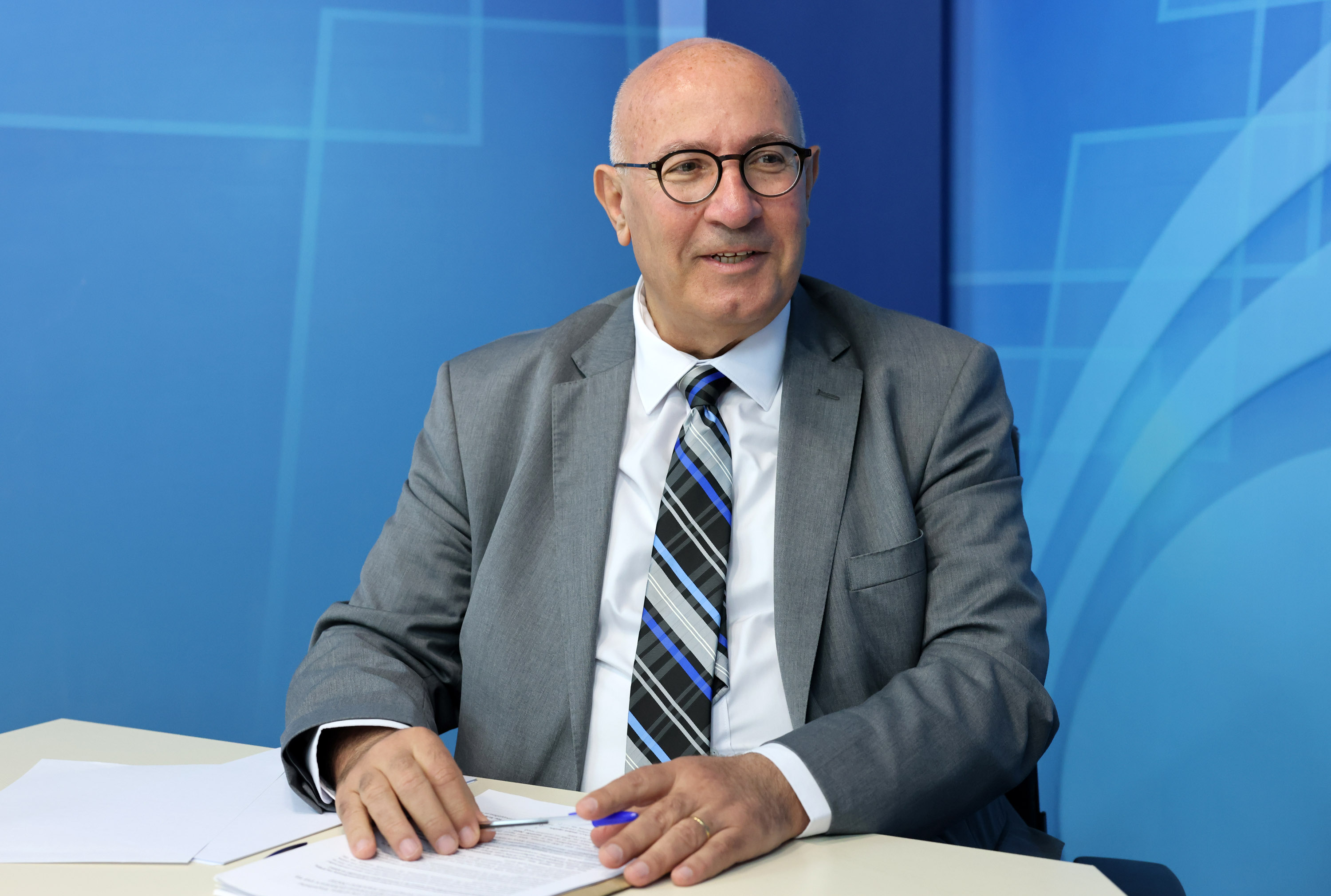Cyprus is not merely a recipient of aid but a strategic partner capable of shaping Europe’s future, outgoing European Investment Bank (EIB) Vice-President Kyriakos Kakouris said in an interview with the Cyprus News Agency (CNA).
Reflecting on more than two decades with the EIB Group, Kakouris — the first Cypriot to serve as Vice-President — described his tenure as one of the most productive and demanding of his career. “Europe faces significant challenges — from the energy crisis and climate change to social inequalities and geopolitical uncertainty. As Europe’s financial arm, the EIB must live up to citizens’ expectations, and I believe we are achieving this,” he said.
Kakouris said Cyprus should not be seen merely as a beneficiary of European programmes but as “a laboratory of innovation, a battleground against water scarcity, and a bridge between Europe and the Eastern Mediterranean.” He pointed to the establishment of the EIB office in Nicosia during his term as a milestone, describing it as a move that strengthened cooperation between European institutions, local authorities, and the private sector.
“Our presence in Cyprus is not symbolic,” he said. “It has a substantial impact on the economy, supports energy and water infrastructure projects, and provides better access to financing for small and medium-sized enterprises through Cypriot banks.”
Turning to water security, Kakouris spoke with evident concern about the growing threat of scarcity. “Water is the most fundamental resource of life. In Cyprus, every household learns early on that water is precious and vulnerable,” he said. “We worked intensively with the European Commission to develop the Water Resilience Strategy, which we complemented with the EIB Group’s €15 billion Water Resilience Programme, expected to mobilise up to €40 billion in investments over the next three years.”
He added that desalination and irrigation projects, while essential, must be part of a broader, long-term approach. “We need a comprehensive strategy, including smart infrastructure, water recycling, and restoration of aging networks to reduce losses and leaks,” he said.
Discussing regional cooperation, Kakouris underlined the importance of trust-based partnerships with governments and institutions in the Eastern Mediterranean and Southern Europe. “Through joint initiatives, we have promoted strategic investments in green energy, the circular economy, infrastructure resilience, and digital transformation,” he said.
He also noted that the EIB has deepened its collaboration with the European Commission to align its work with EU policies such as the Green Deal and InvestEU, while expanding cooperation with the Council of Europe Development Bank to focus on employment and social cohesion.
Regarding the Great Sea Interconnector, linking the power grids of Cyprus and Greece, Kakouris said the EIB remains ready to support the project if both governments commit to a compatible and integrated strategy. “The Bank has not yet received an official funding request, but any such proposal will be evaluated based on technical, economic, and environmental criteria,” he said.
He also highlighted the EIB’s digital transformation, which he said has made the institution more transparent, efficient, and accessible to governments and businesses.
As his term concludes, Kakouris said he hopes to be remembered for strengthening EIB support for sustainable investments and innovation. “My experience has shown that every challenge is also an opportunity,” he said. “That belief will continue to guide my next steps.”






Click here to change your cookie preferences